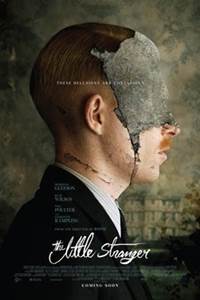Stern searches for order in ‘American Chaos’
Directed and written by: James D. Stern
“American Chaos” – “They hate her, and they hate Obama too.” – James D. Stern
The aforementioned quote about Hillary Clinton and President Obama is one of the conclusions that director James D. Stern inevitably acknowledges in his documentary “American Chaos” about a nearly two-year-old event, the 2016 U.S. Presidential Election. Stern – a lifelong Democrat who declares that Bobby Kennedy is one of his heroes – probably already knew that particular fact before making his movie. He confirms it, however, during his own personal ground game.
For six months leading up to election day, Stern travels to Ohio, Florida, West Virginia, and Arizona, finds passionate Americans who back Trump and conducts 1:1 interviews. His larger point? To explore Trump supporters’ perspectives and reasons for the attraction to their candidate.
It’s not easy for Stern, a passionate progressive, because other than declaring, “Lady Gaga likes to explore fashion,” describing U.S. politics as a divisive mess might be the understatement of the year.
With two polarizing presidential candidates, tribal television, radio and social media constantly reinforce that the other (Republican or Democrat) is alien.
Stern meets these so-called aliens, like Julio Martinez of Florida and Brian and Kristi Beddow of West Virginia. Of course, Trump supporters’ views have been well-documented ad nauseam for a couple years now. To Stern’s credit, rather than snap a few soundbites via contentious CNN panels, he provides a welcoming space and plenty of time for his interviewees to state and expand on their points, and they do.
Sometimes, they rightfully vent about the declining coal industry and then shift towards hope that Trump will bring jobs back. On other occasions, they will curtly say that Hillary Clinton should be locked up. In one case, Brian Beddow – who appears poised to jump at Stern’s throat at the slightest provocation - alludes that Hillary’s use of a public email server for government business justifies prison or perhaps worse. (Note that Beddow does not recommend the death penalty, but he does not rule it out either.)
Stern mostly lets his on-screen subjects speak without debate and interruption, but he occasionally disagrees. When Stern does interject, his retorts are respectful and aren’t combative. His unsaid-mindset appears to be: Trump voters are free to express their thoughts unimpeded, but if a particular comment falls so far out of bounds, I might spontaneously combust by staying silent.
This allows for calm discourse and opportunities to listen.
Stern also listens to others who cast sensible arguments against Trump supporters: sociology, climate, race-relations, and media experts, like Dr. Darrell Hunt and Dr. David Archer. For Stern, these small reprieves give him some relief, especially after feeling like an oddball within a sea of “Make America Great Again” red baseball caps for months.
Democrats are not completely void from the film, as a few Hillary voters display their unwise overconfidence over the heartland’s hearts. Make no mistake, “American Chaos” looks at the world through a progressive lens, but it also reaches across the aisle. Hillary supporters just might discover empathy for some Trump voters, because on-screen discourse over vanishing jobs and porous international borders are justified arguments.
Sure, Trump voters will continue to dislike President Obama and Hillary Clinton, and Stern might forever-loathe their guy, but these Americans in front of and behind the camera do not seem to hate one another.
Hey, that sounds like progress!
(3/4 stars)
Jeff – a member of the Phoenix Critics Circle – has penned film reviews since 2008 and graduated from ASU’s Walter Cronkite School of Journalism. Follow Jeff and the Phoenix Film Festival on Twitter @MitchFilmCritic and @PhoenixFilmFest, respectively.





























